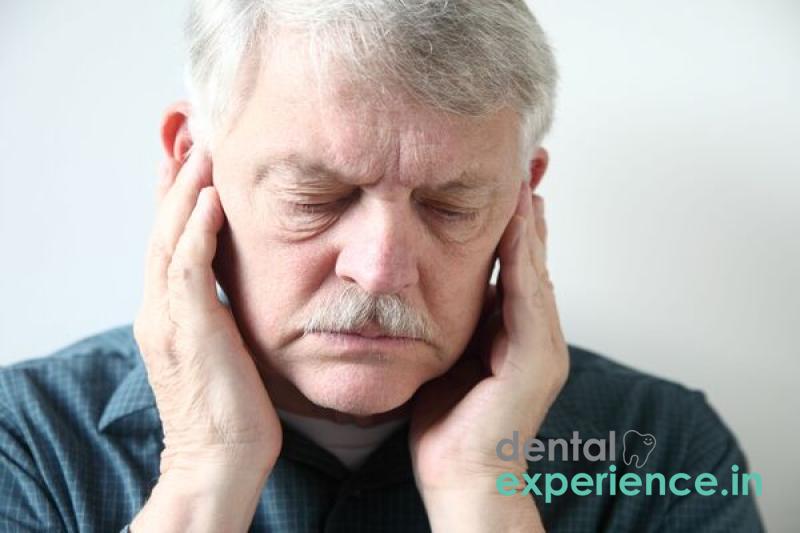You may have had a dental crown fitted in the past but what you may not know is whatever material they are made fr ..
Consultation for Temperomandibular Joint Disorder
Fast facts

The temporomandibularoint (TMJ) acts like a sliding hinge, connecting your jawbone to your skull. You have one joint on each side of your jaw. TMJ disorders — a type of temporomandibular disorder or TMD — can cause pain in your jaw joint and in the muscles that control jaw movement.
The exact cause of a person's TMJ disorder is often difficult to determine. Your pain may be due to a combination of factors, such as genetics, arthritis or jaw injury. Some people who have jaw pain also tend to clench or grind their teeth (bruxism), although many people habitually clench or grind their teeth and never develop TMJ disorders.
In most cases, the pain and discomfort associated with TMJ disorders is temporary and can be relieved with self-managed care or nonsurgical treatments. Surgery is typically a last resort after conservative measures have failed, but some people with TMJ disorders may benefit from surgical treatments.
Signs and symptoms of TMJ disorders may include:
-
Pain or tenderness of your jaw
-
Pain in one or both of the temporomandibular joints
-
Aching pain in and around your ear (ear buzzing)
-
Difficulty chewing or pain while chewing
-
Aching facial pain
-
Locking of the joint, making it difficult to open or close your mouth
TMJ disorders can also cause a clicking sound or grating sensation when you open your mouth or chew. But if there's no pain or limitation of movement associated with your jaw clicking, you probably don't need treatment for a TMJ disorder.
Your doctor or dentist will discuss your symptoms and examine your jaw. He or she will probably:
-
Listen to and feel your jaw when you open and close your mouth
-
Observe the range of motion in your jaw
-
Press on areas around your jaw to identify sites of pain or discomfort
If your doctor or dentist suspects a problem, you may need:
-
Dental X-rays to examine your teeth and jaw
-
CT scan to provide detailed images of the bones involved in the joint
-
MRI to reveal problems with the joint's disk or surrounding soft tissue
TMJ arthroscopy is sometimes used in the diagnosis of a TMJ disorder. During TMJ arthroscopy, your doctor inserts a small thin tube (cannula) into the joint space, and a small camera (arthroscope) is then inserted to view the area and to help determine a diagnosis.
Risk factors
- Various types of arthritis, such as rheumatoid arthritis and osteoarthritis
- Jaw injury
- Long-term (chronic) grinding or clenching of teeth
- Certain connective tissue diseases that cause problems that may affect the temporomandibular joint
Treatments
In some cases, the symptoms of TMJ disorders may go away without treatment. If your symptoms persist, your doctor may recommend a variety of treatment options, often more than one to be done at the same time.
Medications
Along with other nonsurgical treatments, these medication options may help relieve the pain associated with TMJ disorders:
-
Pain relievers and anti-inflammatories. If over-the-counter pain medications aren't enough to relieve TMJ pain, your doctor or dentist may prescribe stronger pain relievers for a limited time, such as prescription strength ibuprofen.
-
Tricyclic antidepressants. These medications, such as amitriptyline, are used mostly for depression, but in low doses, they're sometimes used for pain relief, bruxism control and sleeplessness.
-
Muscle relaxants. These types of drugs are sometimes used for a few days or weeks to help relieve pain caused by TMJ disorders created by muscle spasms.
Therapies
-
Oral splints/mouth guards/Night Guards . A mouth guard, otherwise known as a bite guard or a stabilization splint, is made of hard acrylic resin.They are effective, especially for people who suffer from grinding.
-
Physical therapy. Along with exercises to stretch and strengthen jaw muscles, treatments might include ultrasound, moist heat and ice.
-
Counseling. Education and counseling can help you understand the factors and behaviors that may aggravate your pain, so you can avoid them. Examples include teeth clenching or grinding, leaning on your chin, or biting fingernails.
When other methods don't help, your doctor might suggest procedures such as:
-
Arthrocentesis. Arthrocentesis is a minimally invasive procedure that involves the insertion of small needles into the joint so that fluid can be irrigated through the joint to remove debris and inflammatory byproducts.
-
Injections. In some people, corticosteroid injections into the joint may be helpful. Infrequently, injecting botulinum toxin type A (Botox, others) into the jaw muscles used for chewing may relieve pain associated with TMJ disorders.
What you can do
You may want to prepare a list that answers the following questions:
-
When did your symptoms begin?
-
Have you ever had this occur in the past?
-
Has your level of stress increased recently?
-
Do you have frequent headaches, neck aches or toothaches?
-
What medications and supplements do you take regularly?
What to expect from your doctor or dentist
Your doctor may ask some of the following questions:
-
Is your pain constant or do your symptoms come and go?
-
Does any activity seem to trigger the pain?
-
Does your jaw click or pop when you move it? Is that clicking painful?
-
Is it difficult to open your mouth normally?
Your doctor or dentist will ask additional questions based on your responses, symptoms and needs. Preparing and anticipating questions will help you make the most of your time.
 Dr. Sreeja Aravind, MDS
Dr. Sreeja Aravind, MDS